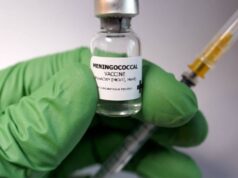WED, 30 DEC, 2020-theGBJournal- With the recent emergence in the African region of new COVID-19 variants which seem to have higher transmissibility, the World Health Organization (WHO) calls on countries to boost genomic surveillance and analysis through the African genome sequencing laboratory network to detect any new mutations and strengthen the efforts to curb the pandemic.
South Africa recently detected a new SARS-CoV-2 variant, which appears to transmit more easily and is likely linked to the ongoing surge of COVID-19 infections in the country. Further analysis is underway to determine the full epidemiological significance of this mutation. Nigeria is also carrying out more investigations on a variant identified in samples collected in August and October.
“The emergence of new COVID-19 variants is common. However, those with higher speed of transmission or potentially increased pathogenicity are very concerning. Crucial investigations are underway to comprehensively understand the behaviour of the new mutant virus and steer response accordingly,” said Dr Matshidiso Moeti, WHO Regional Director for Africa.
In September 2020, WHO and the Africa Centres for Disease Control and Prevention launched network of 12 laboratories in Africa to reinforce genome sequencing of the SARS-CoV-2. As of 23 December, 4948 sequences had been produced in the region, representing just 2% of the 295 101 sequences done so far worldwide.
South Africa, which has carried out most of the 4948 sequences, has identified 35 SARS-CoV-2 lineages, and Nigeria 18. Grouping viruses from different countries into the same lineage or sub-lineage shows linkage or importation of viruses between countries.
The WHO Regional Office for Africa is providing technical guidance and mobilizing additional financial support to speed up the genomic sequencing in most countries in the region as well as assisting in shipping samples to regional reference laboratories from countries that do not have specialized diagnostic facilities.
“While surveillance and detection of COVID-19 are critical components of the response to the pandemic, public health measures such as handwashing, physical distancing and wearing of masks also remain key to limiting infection,” said Dr Moeti. “The current preventive measures are effective even on the new SARS-CoV-2 variants.”
The new variants have emerged as COVID-19 infections are on the rise in the 47 countries in the WHO African region, nearly reaching the peak seen in July. In the past 28 days, Algeria, Botswana, Burkina Faso, Democratic Republic of the Congo, Ethiopia, Kenya, Namibia, Nigeria, South Africa and Uganda have reported the highest number of new cases, accounting for 90% of all the infections in the region.
Twitter-@theGBJournal|email: info@govandbusinessjournal.com.ng









